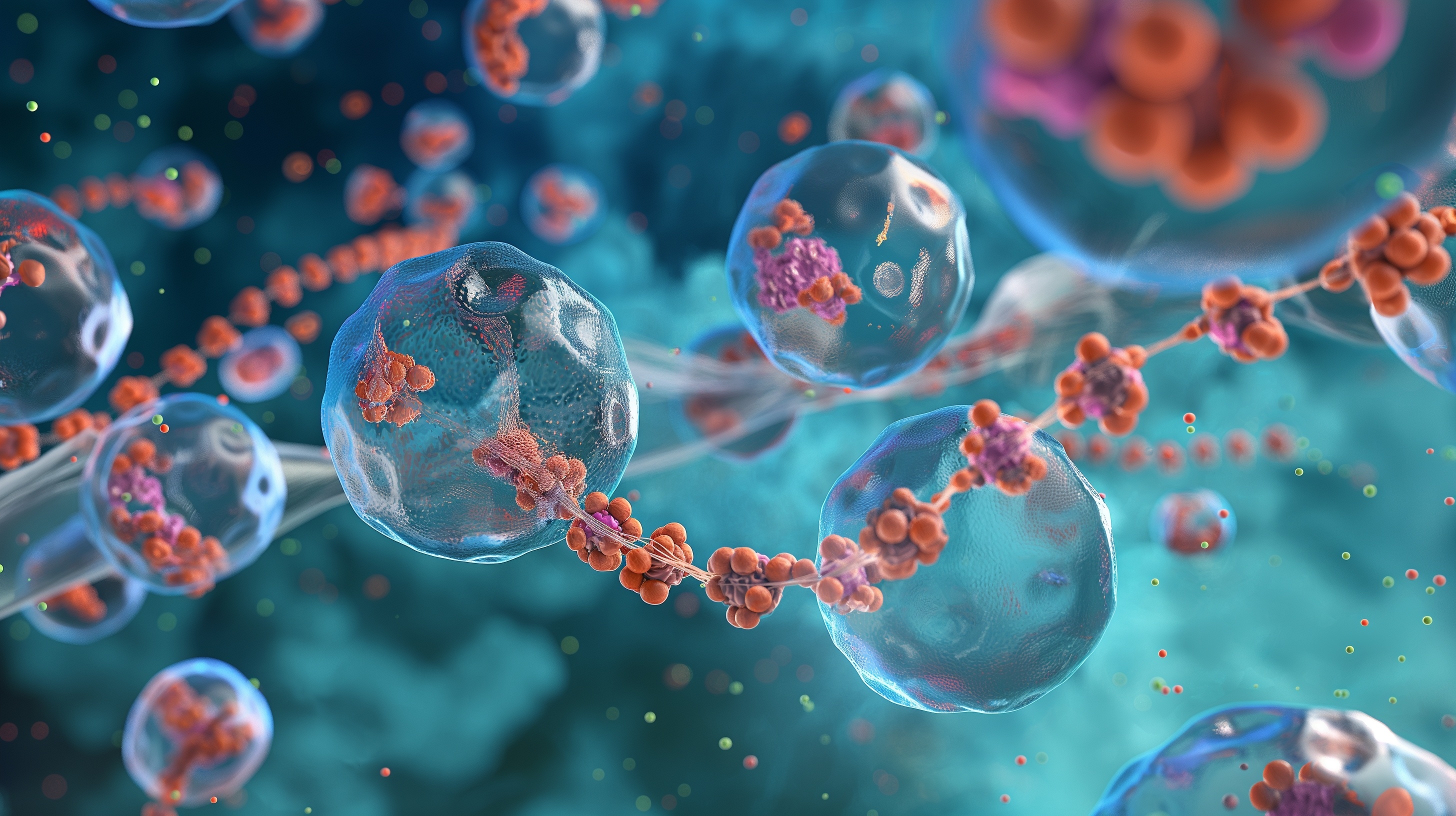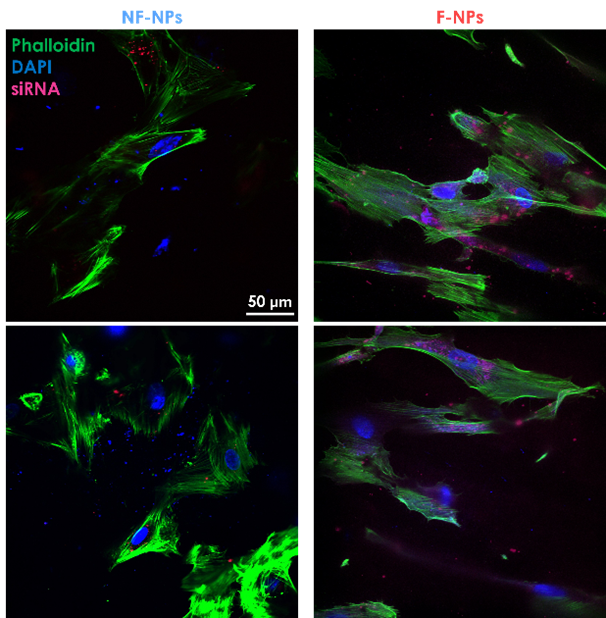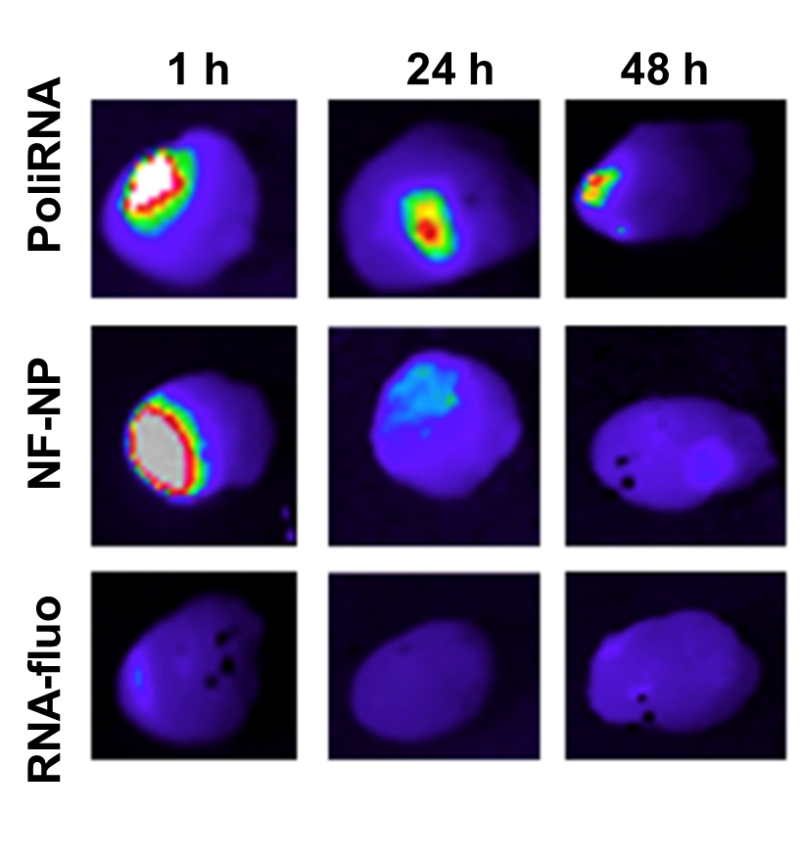
Nanoparticles for the delivery of RNAs in innovative therapies: the journey of BIORECAR project funded by the European Research Council at Politecnico

A hybrid nanoparticle – made of synthetic polymers and lipids, extremely versatile, capable of transporting different types of RNA – that can be functionalized according to the target and the need. This is the key result achieved by the team led by Valeria Chiono, Professor at the Department of Mechanical and Aerospace Engineering-DIMEAS of Politecnico di Torino, which has been patented and is now attracting particular interest, as it has the potential to enable new treatment systems for a variety of diseases by delivering RNA molecules precisely where they are needed to act.
We have learned about the use of RNA molecules during the COVID-19 period, thanks to the rapid development of innovative vaccines. This wave of interest and investment in RNA technology is now accelerating research into RNA-based therapies. The role of messenger RNA (mRNA), used in vaccines, is to copy genetic information and deliver the blueprint needed to produce a specific protein to the cellular machinery. A synthetic mRNA sequence with the right code can be encapsulated in nanoparticles and function as a drug, inducing the body to produce the desired protein to fight a pathogen.
Research is now also focusing on other types of RNAs, known as “non-coding” RNAs, such as microRNAs. Rather than directly producing a protein, microRNAs regulate the quantity of multiple mRNAs involved in the production of numerous cellular proteins. MicroRNAs are therefore particularly effective in reprogramming cellular behavior.
The journey of this research began with a Consolidator Grant provided by the prestigious European Research Council-ERC to Politecnico di Torino, and specifically to the team led by Professor Valeria Chiono, for a project that has just been completed after achieving multiple significant results.
“The aim of BIORECAR was to develop a new multifunctional biomaterial-based platform for the regeneration of cardiac tissue after a heart attack – explains Valeria Chiono – the platform was designed to enhance the direct reprogramming of human cardiac fibroblasts into functional cardiomyocytes – that is, transforming the cells in the scar tissue left by a heart attack into functional cardiac cells, capable of ensuring cardiac contraction, through a regenerative medicine process".

The hybrid nanoparticles developed within the project can be injected with a hydrogel and offer key advantages over those traditionally used – made solely of lipids – such as lower toxicity and greater stability. The research group found that this type of injectable nanoparticle could also be optimized for the treatment of neuromuscular diseases, with studies currently underway in this field with the support of an AFM-Telethon project coordinated by the University of Padua.
What made such rapid progress possible in just a few years? "We have been supported by Proof of Concept funds from the European Research Council (ERC-PoC POLIRNA - 101113522), Fondazione Compagnia di San Paolo and Fondazione Links, as well as by fundings from the PNRR (the Italian National Recovery and Resilience Plan - Next Generation EU) within the framework of Spoke 5 (Industry, Health and Silver Economy) of the NODES innovation ecosystem, and also through Spoke 4 (Metabolic and Cardiovascular Diseases) and Spoke 8 (Platforms for DNA/RNA Delivery) within the Italian National Center for the Development of Gene Therapy and Drugs based on RNA Technology – says Chiono – Furthermore, these advances were made possible thanks to the contribution of a multidisciplinary team and our collaborations with the Universities of Turin, Padua, and Trento. Additionally, the awarding of I-Tech Innovation Program, a business acceleration program by Fondazione Golinelli and G-Factor, supported the foundation of PoliRNA Srl startup (now recognized spin-off of Politecnico di Torino) by postdoctoral researcher Letizia Nicoletti (CEO), PhD student Giovanni Paolo Stola (CSO) and myself. The startup has taken part in various competitions getting several awards, and was also selected as semi-finalist in the prestigious European competition EIT Health Catapult, winning the AstraZeneca Industry Prize which provides support and opportunities for promising European health startups to develop and scale their businesses".
This structured financing system has therefore allowed the team at Politecnico di Torino to advance the basic research conducted as part of the BIORECAR project, bringing it to the level of preclinical experimentation. Different preclinical validation experiments have been already performed using human cardiac cells, and further studies are underway for the treatment of neuromuscular diseases. These include in vitro tests using both traditional two-dimensional cell models and innovative three-dimensional tissue models, following the so-called “3R principle (Reduction, Replacement, Refinement)”, aimed at minimizing animal testing and improving the predictivity of preclinical testing. Finally, in vivo testing has started – as required by regulatory standards – to complete the preclinical validation phase.
This final phase of the research is now in its early stages, but initial results have shown that the biodistribution of the injected nanoparticles is significantly higher in the target tissue when their surface is appropriately functionalized.
“Our nanoparticles offer high encapsulation efficiency, high in vitro and in vivo stability, and the possibility of surface functionalization aimed at active targeting towards the cells and organs of interest. The prospect, therefore, is that they can become a treatment platform adaptable to even very different therapies and cases”, concludes Valeria Chiono.